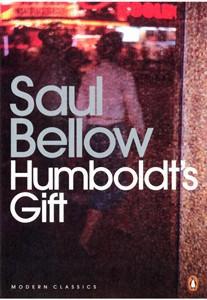
Humboldt's Gift PDF
Preview Humboldt's Gift
Novel by Saul Bellow, published in 1975. The novel, which won the Nobel Prize for Literature in 1976, is a self-described "comic book about death," whose title character is modeled on the self-destructive lyric poet Delmore Schwartz. Charlie Citrine, an intellectual, middle-aged author of award-winning biographies and plays, contemplates two significant figures and philosophies in his life: Von Humboldt Fleisher, a dead poet who had been his mentor, and Rinaldo Cantabile, a very-much-alive minor mafioso who has been the bane of Humboldt's existence. Humboldt had taught Charlie that art is powerful and that one should be true to one's creative spirit. Rinaldo, Charlie's self-appointed financial adviser, has always urged Charlie to use his art to turn a profit. At the novel's end, Charlie has managed to set his own course. -- __
Product DescriptionA chronicle of success and failure, this work is Bellow's tale of the writer's life in America. When Humboldt dies a failure in a seedy New York hotel, Charlie Citrine coping with the tribulations of his own success, begins to realize the significance of his own life.
